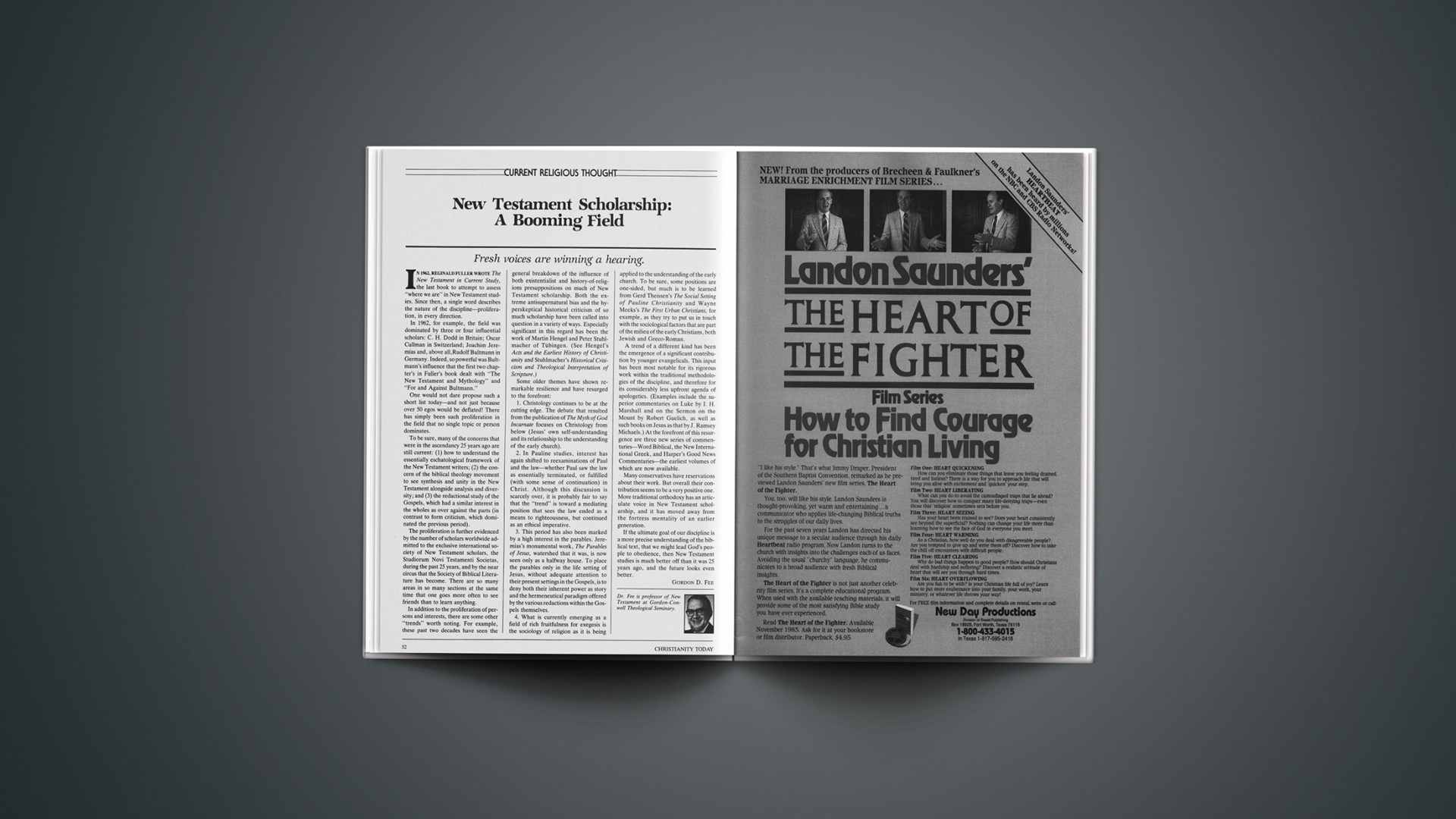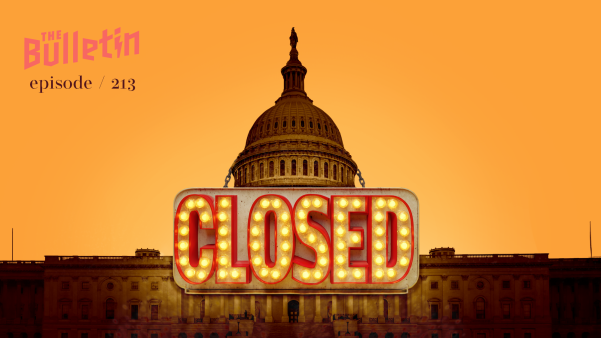Fresh voices are winning a hearing.
In 1962, reginald fuller wrote The New Testament in Current Study, the last book to attempt to assess “where we are” in New Testament studies. Since then, a single word describes the nature of the discipline—proliferation, in every direction.
In 1962, for example, the field was dominated by three or four influential scholars: C. H. Dodd in Britain; Oscar Cullman in Switzerland; Joachim Jeremias and, above all, Rudolf Bultmann in Germany. Indeed, so powerful was Bultmann’s influence that the first two chapter’s in Fuller’s book dealt with “The New Testament and Mythology” and “For and Against Bultmann.”
One would not dare propose such a short list today—and not just because over 50 egos would be deflated! There has simply been such proliferation in the field that no single topic or person dominates.
To be sure, many of the concerns that were in the ascendancy 25 years ago are still current: (1) how to understand the essentially eschatological framework of the New Testament writers; (2) the concern of the biblical theology movement to see synthesis and unity in the New Testament alongside analysis and diversity; and (3) the redactional study of the Gospels, which had a similar interest in the wholes as over against the parts (in contrast to form criticism, which dominated the previous period).
The proliferation is further evidenced by the number of scholars worldwide admitted to the exclusive international society of New Testament scholars, the Studiorum Novi Testamenti Societas, during the past 25 years, and by the near circus that the Society of Biblical Literature has become. There are so many areas in so many sections at the same time that one goes more often to see friends than to learn anything.
In addition to the proliferation of persons and interests, there are some other “trends” worth noting. For example, these past two decades have seen the general breakdown of the influence of both existentialist and history-of-religions presuppositions on much of New Testament scholarship. Both the extreme antisupernatural bias and the hyperskeptical historical criticism of so much scholarship have been called into question in a variety of ways. Especially significant in this regard has been the work of Martin Flengel and Peter Stuhlmacher of Tübingen. (See Hengel’s Acts and the Earliest History of Christianity and Stuhlmacher’s Historical Criticism and Theological Interpretation of Scripture.)
Some older themes have shown remarkable resilience and have resurged to the forefront:
1. Christology continues to be at the cutting edge. The debate that resulted from the publication of The Myth of God Incarnate focuses on Christology from below (Jesus’ own self-understanding and its relationship to the understanding of the early church).
2. In Pauline studies, interest has again shifted to reexaminations of Paul and the law—whether Paul saw the law as essentially terminated, or fulfilled (with some sense of continuation) in Christ. Although this discussion is scarcely over, it is probably fair to say that the “trend” is toward a mediating position that sees the law ended as a means to righteousness, but continued as an ethical imperative.
3. This period has also been marked by a high interest in the parables. Jeremias’s monumental work, The Parables of Jesus, watershed that it was, is now seen only as a halfway house. To place the parables only in the life setting of Jesus, without adequate attention to their present settings in the Gospels, is to deny both their inherent power as story and the hermeneutical paradigm offered by the various redactions within the Gospels themselves.
4. What is currently emerging as a field of rich fruitfulness for exegesis is the sociology of religion as it is being applied to the understanding of the early church. To be sure, some positions are one-sided, but much is to be learned from Gerd Theissen’s The Social Setting of Pauline Christianity and Wayne Meeks’s The First Urban Christians, for example, as they try to put us in touch with the sociological factors that are part of the milieu of the early Christians, both Jewish and Greco-Roman.
A trend of a different kind has been the emergence of a significant contribution by younger evangelicals. This input has been most notable for its rigorous work within the traditional methodologies of the discipline, and therefore for its considerably less upfront agenda of apologetics. (Examples include the superior commentaries on Luke by I. H. Marshall and on the Sermon on the Mount by Robert Guelich, as well as such books on Jesus as that by J. Ramsey Michaels.) At the forefront of this resurgence are three new series of commentaries—Word Biblical, the New International Greek, and Harper’s Good News Commentaries—the earliest volumes of which are now available.
Many conservatives have reservations about their work. But overall their contribution seems to be a very positive one. More traditional orthodoxy has an articulate voice in New Testament scholarship, and it has moved away from the fortress mentality of an earlier generation.
If the ultimate goal of our discipline is a more precise understanding of the biblical text, that we might lead God’s people to obedience, then New Testament studies is much better off than it was 25 years ago, and the future looks even better.
GORDON D. FEE1Dr. Fee is professor of New Testament at Gordon-Conwell Theological Seminary.










